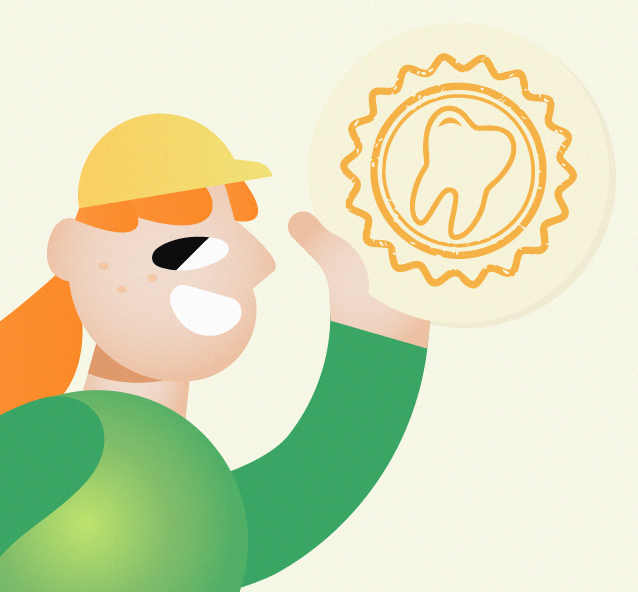Pregnancy and dental hygiene: what are the links?
Pregnancy and the birth of a child are important stages in a woman’s life. The body changes, the organism alters and the hormones are disturbed. During this special period, the pregnant woman receives a lot of advice and recommendations for an optimal course of the pregnancy and the development of the foetus.
The well-being of the pregnant woman during pregnancy is of utmost importance. But did you know that taking care of your oral health is also important? Take the time to visit your dental hygienist or dentist during this special time, they have valuable advice to give you
When you visit, inform your practitioner that you are pregnant.

FAQ – Pregnancy and dental hygiene
Unusual appetite during pregnancy: some dental hygiene rules to follow
The much-talked-about hormones can lead to an unusual appetite for foods that would not normally tempt you. This change in diet – especially for sweet foods – can increase the risk of cavities. Throughout your pregnancy, it is important to maintain excellent oral hygiene, including regular brushing of your teeth to avoid plaque build-up. It is also recommended that you use an additional cleaning aid for the interdental spaces, such as dental floss, toothpicks, brushes or any other aid recommended by your dental hygienist or dentist.
During pregnancy, we recommend two scaling sessions to ensure the health of your gums and teeth. The hygienist removes all deposits from your teeth (plaque, tartar, stains). If your gums show signs of inflammation, the dental hygienist will give you these oral cleaning tips tailored to your personal situation to keep your smile healthy.
Pregnancy nausea: the right things to do to protect your teeth
Nausea can be a daily occurrence for pregnant women. This phenomenon causes an accumulation of acid in your mouth, a decrease in salivary pH and creates decalcifications on the surface of the dental enamel. To reduce the impact of acidity on your teeth, it is recommended that you rinse your mouth with water and use a mouthwash containing fluoride. Fluoride will remineralise the surface of your tooth enamel and thus strengthen it. We advise you to rinse your mouth thoroughly with water or mouthwash after vomiting. The pH will be neutralised and your enamel will be protected from acid attacks.
Pregnancy gingivitis or pregnancy gingivitis: what is it?
Pregnancy gingivitis, also known as gravid gingivitis, is a consequence of the hormonal imbalance that occurs during pregnancy. The hormonal imbalance makes the oral mucous membranes more sensitive to the aggression of the bacteria present in the mouth. Increased sensitivity of the gums, inflammation of the gum tissue and irregularly contoured gums are some of the symptoms of pregnancy gingivitis. Other visible symptoms such as redness, swelling of the gums and spontaneous bleeding should alert you to the condition of your gums.
If you notice these symptoms, you should make an appointment with your dental hygienist who will gently scale your teeth.
In some cases, periodontitis (a disease that destroys the gums and bone around your teeth) is a significant factor in increasing the risk of premature delivery. Numerous studies have shown that the presence of periodontitis in a pregnant woman increases the risk that the child will be born before the 37th week of pregnancy and/or with a low birth weight. The toxins and bacteria present during periodontitis are linked to premature delivery.
In any case, to maintain healthy gums and teeth, we recommend regular scaling and check-ups, even before you become pregnant!
“One pregnancy, one tooth”: myth or reality?
Pregnant women wrongly accuse their babies of “taking calcium” from them, which would result in the loss of one tooth per pregnancy. In the past, pregnancy caused deficiencies, particularly in calcium, but today, malnutrition cannot be blamed.
The only repercussions are hormonal, with a risk of acute gingivitis, which causes gum sensitivity, bleeding and swelling, in short, pain that makes brushing difficult. Snacking and sugary foods are also two risk factors for teeth.
To avoid pain and dental problems during your pregnancy, maintain good eating habits, regular dental hygiene and visits to your hygienist or dentist. This will keep your teeth and gums healthy! ?
Do you have any questions? Are your gums sore?
Contact your nearest dental clinic or make an appointment via our contact form.
Find my clinic




